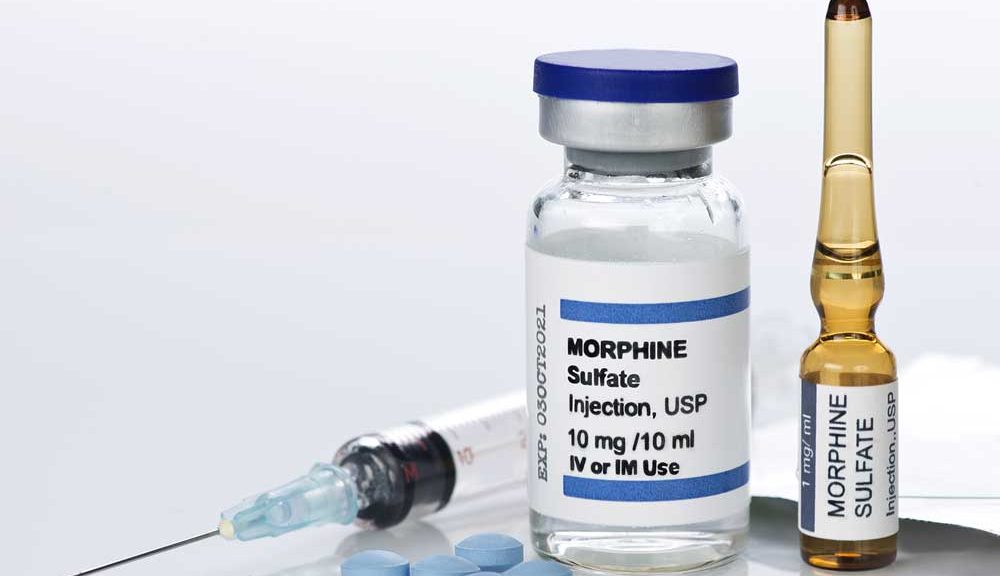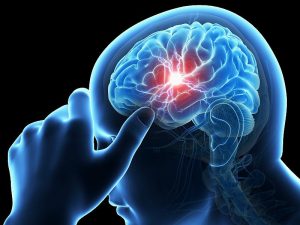
Will I Experience Withdrawal From Morphine Addiction?
Morphine is a kind of pain killing drug used for moderate to severe pain. It is an opioid, which puts it in the same class as codeine, fentanyl, and oxycodone. Morphine is often used to relieve pain after surgery and for cancer patients experiencing severe pain.
Morphine also has a sedating effect. It can put you to sleep in high enough doses. While this effect is medically useful sometimes, it also makes the drug potentially addictive.
As with any addictive substance, morphine can trigger withdrawal symptoms. Read further to find out what these symptoms are and how morphine addiction works.
Why can I get addicted to morphine?
 Though morphine is a prescription drug, it has addictive properties. In fact, the Drug Enforcement Administration (DEA) calls it a Schedule II drug. In other words, morphine has known medical uses but has the potential for abuse.
Though morphine is a prescription drug, it has addictive properties. In fact, the Drug Enforcement Administration (DEA) calls it a Schedule II drug. In other words, morphine has known medical uses but has the potential for abuse.
For that reason, morphine is a tightly regulated drug. The only way to legally have it is when your doctor prescribes it to you. Possession of morphine without a prescription is a criminal offense.
Basically, morphine blocks transmission of pain signals in the brain. Morphine molecules stick to parts of the brain known as opioid receptors, and once they’re stuck, pain sensations are blocked.
Although morphine provides effective and powerful pain relief, it does have one side effect. Morphine also produces a euphoric feeling that’s like being in a dream, as most people describe it. That pleasurable feeling is what makes the drug potentially addictive.
Addiction often begins when you misuse morphine. Usually, this is done by taking more than your prescribed dose. At this point, you don’t use morphine just for the pain relief, but more for the euphoric effect.
Soon enough, you would get obsessed with that “high,” and you’ll end up taking morphine even if you don’t have to. This usually begins when you keep taking more than the prescribed daily dose. For example, if your doctor told you to take only two tablets per day, you find yourself taking three or four tablets per day instead.
Eventually, you will keep seeking that euphoric, dreamy feeling. You would then keep taking morphine in increasing doses, which can make you dependent on the drug.
If this behavior continues, you will reach a point when you can no longer last a day without a dose of morphine. At this point, you will have become addicted to it.
What will happen if I become addicted to morphine?
 Morphine addiction will change your lifestyle, behaviors, and ways of thinking.
Morphine addiction will change your lifestyle, behaviors, and ways of thinking.
The most obvious sign is spending more of your time and money on morphine. As it’s a prescription-only drug, you may resort to a practice known as “doctor shopping.” Here, you’d visit different doctors and feign illness, with the goal of getting extra prescriptions for morphine.
Otherwise, you may find yourself looking for the drug in the black market. Illegal versions of morphine exist, and they are more dangerous than the ones sold in pharmacies. These illegal versions may include poisonous ingredients. If you take these, you endanger your health and your life.
Addiction to morphine can also ruin your relationships with friends and family. You may find yourself turning them down more often so you can have more time to take the drug. If they advise you to quit, you’ll ignore them, or worse, lash out angrily. If this goes on for a long time, they may begin avoiding you.
Your performance at work or in school will also take a toll. If you spend too much time on morphine, you will end up ditching responsibilities.
Even the things you used to enjoy will be affected. If you have a hobby, you will enjoy it much less as you keep taking morphine. At that point, the drug gives you more “happiness” than your hobby.
In short, your life will revolve around morphine. Taking the drug and getting high becomes your priority. And you’d find it nearly impossible to quit the drug because of withdrawal symptoms.
Why does morphine withdrawal happen?
Morphine withdrawal occurs because your body becomes “shocked” at the sudden absence of the drug. This happens when you quit abruptly after having regularly taken morphine for a long time.
The withdrawal symptoms from morphine include:
 Headaches
Headaches- Chills
- Watery eyes
- Runny nose
- Vomiting
- Fever
- Nausea
- Anxiety
- Irritability
- Agitation
- Excessive sweating
- Muscle pain
- Disorientation
- Diarrhea
- Increased blood pressure
- Fast heartbeat
- Depression
- Insomnia
These symptoms can get so uncomfortable that they may compel you to take morphine again. When you do, you will get relief from withdrawal, but you’ll be back in the cycle of addiction. If you try to quit again, the same thing will happen.
Is there a way to avoid morphine withdrawal symptoms?
Unfortunately, there is no way to avoid these withdrawal symptoms once you’re already addicted to morphine. If you really want to stop taking the drug, you will need professional help in overcoming your addiction.
Talk to a certified addiction professional to get guidance on what you need to do.
What are the treatments for morphine addiction?
The good news is morphine addiction can be treated. You’d have to subject yourself to a rehab program, and it will take a while. In the end, though, the investment of time and money will be worth it.
One important part of rehab is taking you off morphine while minimizing the discomfort of withdrawal symptoms. This is often done through medically assisted detox. Here, doctors will help wean you off the drug. They’ll give you medications if necessary, usually to make the process more tolerable. Pretty soon, you can function normally without taking any morphine at all.
The next steps of rehab involve behavioral therapies. The goal is to retrain your brain to adopt healthy habits, stress management, and coping mechanisms. All of these are intended to replace drug-seeking behavior.
Eventually, you can live a clean life once again. To prevent relapse, your therapists may recommend aftercare as well. This way, even after rehab, you can get help in staying sober.